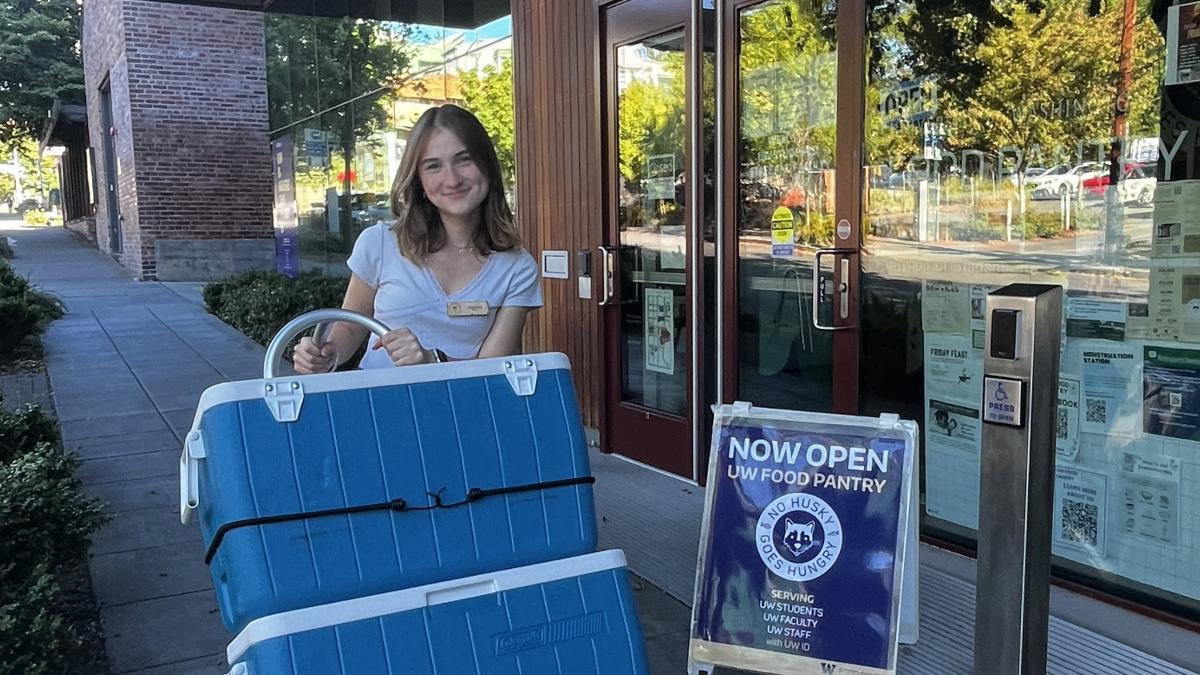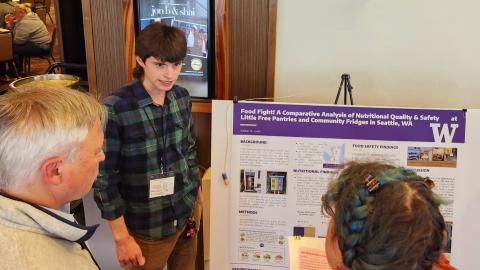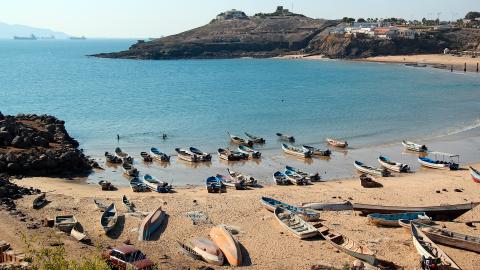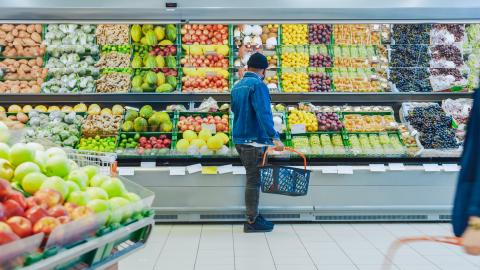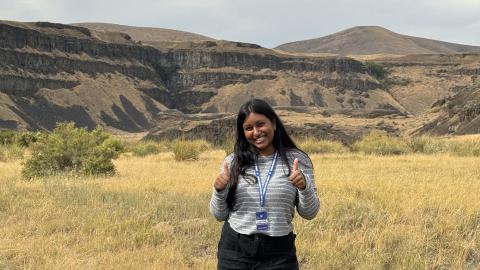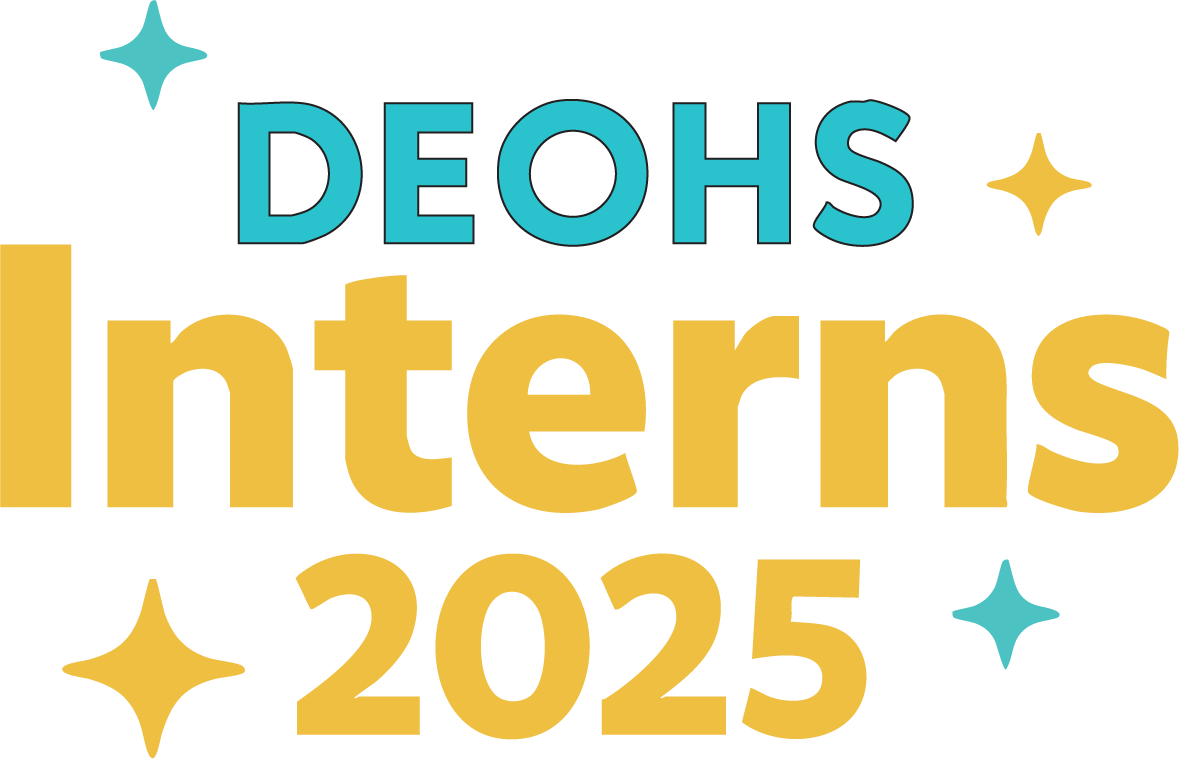
Angelina Durbin
BS, Environmental Public Health
Hometown
Sammamish, WA
Internship with
EarthLab (Host: Center for Health and the Global Environment), UW Food Pantry
Editor’s note: This summer, DEOHS students have been getting hands-on experience as interns with health agencies, nonprofits and private companies. In our occasional “On the Job” series, we feature some of their stories.
Angelina Durbin’s dual internships this summer have her stocking shelves one day while writing about interactive heat maps the next. The two projects might not seem related, but they are.
Durbin is a rising senior and environmental public health major with the Department of Environmental and Occupational Sciences. Her two summer internships are with the UW Food Pantry and EarthLab, where her host organization is the Center for Health and the Global Environment (CHanGE).
“When I first started, I thought these internships were very different, very separate. Then I realized I could include so much of my knowledge about food safety and food systems into this CHanGE internship,” she said.
In fact, she plans to write about climate change and food security for the newly launched CHanGE blog.
Climate change connections
“I see so many connections with global health and the environment in general at the food pantry, just seeing how climate change is impacting the supply chain,” she said. For example, donations to the UW Food Pantry slow down when food is diverted to communities in need after extreme weather events like hurricanes.
“We're not able to get a lot of the food items that we need. Our shelves are becoming bare,” she said.
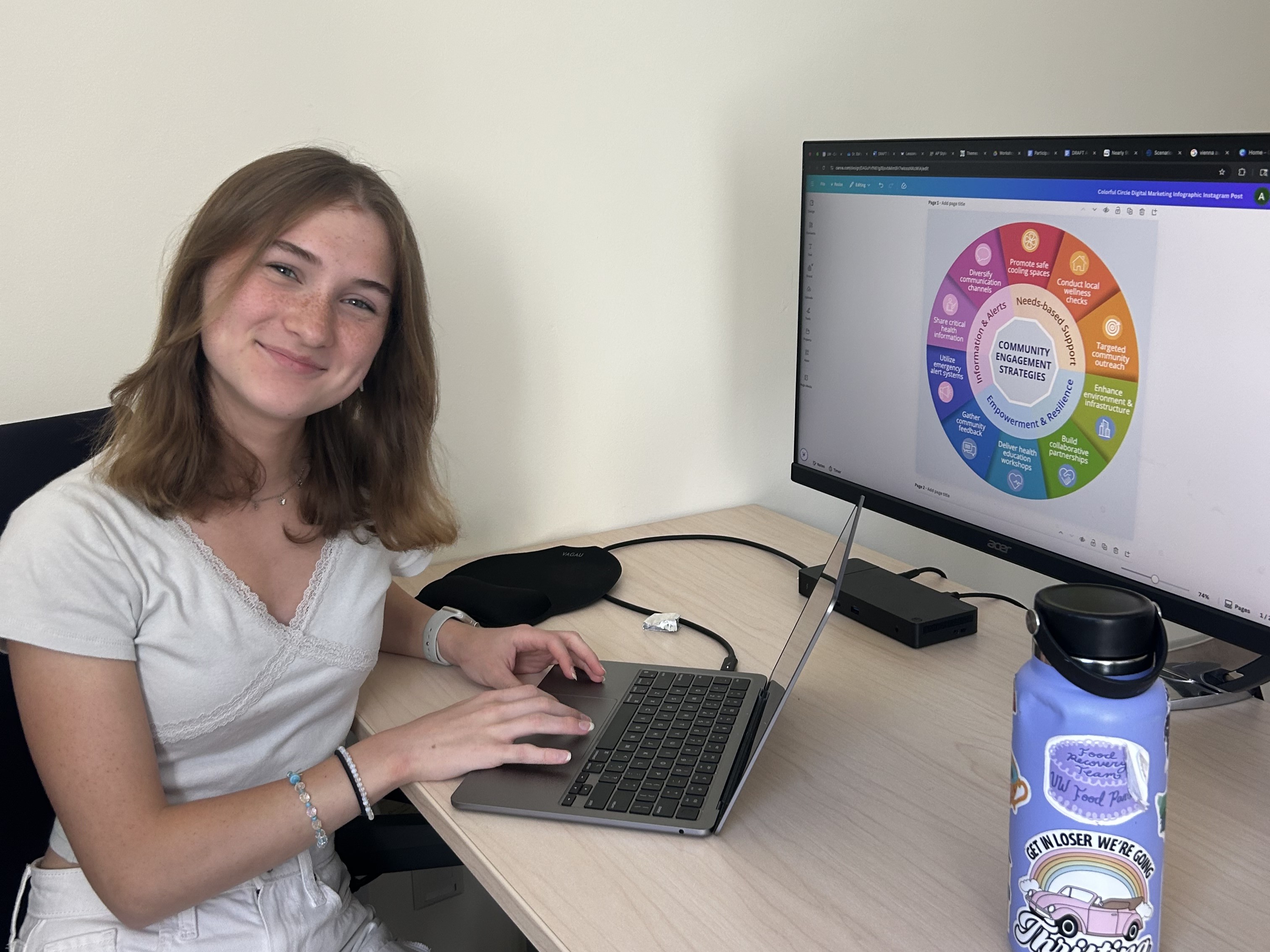
At CHanGE, Durbin is the Climate Health and Risk Tool (CHaRT) communications intern. She’s working to build a community engagement web page that will help decision makers use the CHaRT tool to support and engage their communities during extreme heat events.
The tool generates maps that show how extreme heat risk varies across counties, and which communities of people are more vulnerable. The tool also suggests effective interventions to consider, such as cooling centers.
She’s also writing posts for CHanGE’s blog, highlighting the center’s research on climate change’s health impacts.
Sustainability award
At the UW Food Pantry, Durbin’s internship was a continuation of her work as the pantry’s food recovery coordinator, an effort that earned her a Husky Sustainability Award earlier this year. In addition to overseeing food donations, she has spent the summer putting her environmental health education to good use.
“A lot of different environmental health rules go into the work we do at the pantry, especially with food safety – things like hand washing, safe defrosting, and not touching your phone while repacking food,” she said. “I’ve worked this summer to improve our signage about safety.”
Durbin came to the UW as an environmental engineering major at first, then discovered a passion for urban farming and sustainable food systems. She saw yard signs on campus promoting the environmental public health major and enrolled in Environmental Health 111. Within months, she switched her major, got involved in Project Indoor Farm, and volunteered for the food pantry.
This summer has been a chance to learn the art of scientific communication, a common thread between the two internships. She has handled infographics and social media posts in both jobs, as well as outreach and technical writing.
“I've really taken on this communications role which I really did not expect from someone who started as an environmental engineering major,” she said.
